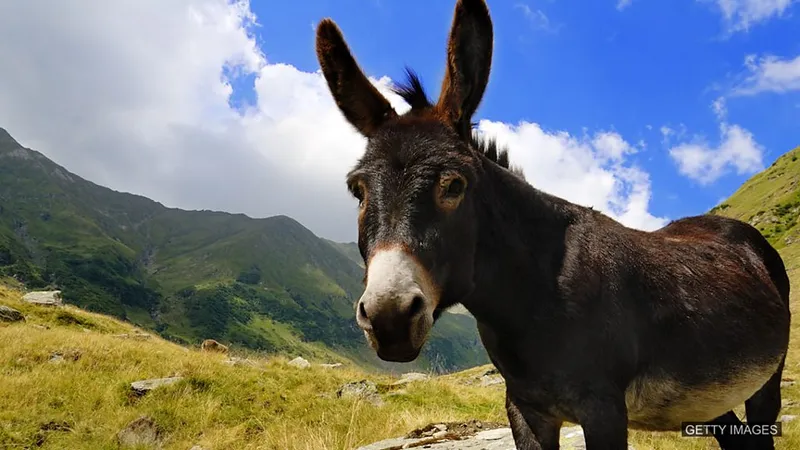Feifei Hello and welcome to The English We Speak. I’m Feifei…
Rob And I’m… Rob.
Feifei Errr… sorry Rob. What did you say?
Rob I said, I’m… Rob.
Feifei Right, and why have you brought a donkey into the studio?
Rob To help with today’s authentic English phrase – which is… donkey’s years.
Feifei So is this about age and how I look like a donkey?
Rob Not exactly Feifei. The phrase comes from rhyming slang – donkey’s years rhymes with donkey’s ears, yes?
Feifei Yes. ‘Donkey’s years’ does rhyme with ‘donkey’s ears’ – so you’re saying my ears are like a donkey’s?
Rob No. Unlike your ears, donkey’s ears are long and when we say we haven’t done something for ‘donkey’s years’ we mean we haven’t done something for a long time.
Feifei Right. Good, so it’s got nothing do with me looking like a donkey?
Rob Absolutely not. Let’s hear the phrase in action…
Examples I’m so bored; I’ve been doing this job for donkey’s years!
I haven’t driven a car for donkey’s years; I hope I can remember what to do.
We’ve got to go to Lily’s party; I haven’t seen her for donkey’s years so it’ll be great to catch up.
Feifei That’s ‘donkey’s years’ – when we haven’t done something for donkey’s years, we haven’t done it for a very long time. So Rob, I could say we haven’t been to the cinema for donkey’s years?
Rob Yes and you’d be correct. We haven’t. Shall we go now?
Feifei OK. But does your donkey have to come too?
Rob Oh look, he’s very excited!
Feifei Yuk! I can see…. What’s that on the floor?
Rob Ooooh yes! Perhaps we’ll leave him shall we, clear that up later. Perhaps he could present some more programmes while we’re away.
Feifei Ha – that is donkey work! Bye
Rob Bye.
